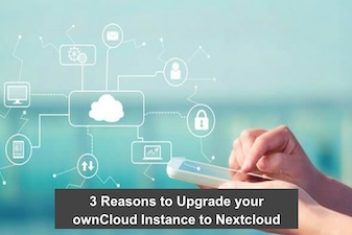The use of cloud technology within businesses isn’t just on the rise, it’s here to stay. Despite its prominence in both office and freelance culture, the cloud is largely misunderstood. While we’ve moved on from people believing bad weather could affect the stability of cloud computing, it’s not uncommon for businesses to employee leagues of people who don’t fully understand what’s powering their everyday routine.
You might even be one of them. Not understanding the cloud is nothing to be ashamed of. If you’re considering moving your business or small enterprise to the cloud it’s important to have questions.
In this article we’ll outline four common doubts to help you gain some clarity around moving to the cloud.
Read: Best Practices for a Successful Cloud Migration Strategy
What use does it actually have?
There are a number of ways cloud computing can be used to improve your business. Some of its uses are niche, but many companies will find the typical capabilities of the cloud useful.
Despite the development of messaging services such as Slack, many businesses still communicate via email. Those that use a dedicated email server can encounter common faults and technical issues, especially if it’s not within their realms of expertise. Switching to a third-party cloud service can take all the responsibility of maintenance and hardware issues out of your hands.
We all know how important it is to back up your data to secure the future of your business and protect sensitive information. Cloud computing makes that simple, adds a further level of protection and ensures that disasters such as fires and break-ins don’t result in you losing the only copy of your data.
Read: Cloud storage : What you need to know
These days, it’s impractical to have software confined to one particular machine in your business. It requires your staff to chop and change where they’re working and slows down workflow considerably. By switching to cloud computing, your most important applications — whether they’re design tools or writing software — are accessible from all machines within the network. This allows for better collaboration and a more practical modern work space.
Is it secure?
When moving sensitive files to the cloud, security becomes an even more crucial consideration for businesses.
Not only do you need to make sure the process is done securely in the first place, but new policies must be established to allow the safe sharing of data amongst employees and clients.
Many businesses within tech industries deal with highly confidential material, either client data or personal user information and details. Ensure you check over your cloud provider’s service agreement in thorough detail prior to signing an agreement. Important questions to ask include where the data is stored, who can access it and what measures are in place to alert you of potential breaches and stop potential attacks.
Read: Cloud Security Posture Management: All Information You Need to Know
Cloud migration strategy: When carrying out a cloud migration, consider integrating your own security systems in the office (or remote office) to add a further layer of backup and take responsibility for any attacks completely out of your hands. For instance, firewalls ensure there is an added layer of protection for your database, while a proxy server will allow you to test your internal security systems firsthand as a proxy allows you to move through undetected.
Who will manage my service?
If you choose to lease your cloud service, it’s important to know who will be managing it.
While some smaller businesses will find success managing cloud deployment by themselves, many will struggle to keep up to date with what is a rapidly developing technology that requires a significant amount of time-consuming research to master.
Read: How Do Cloud Computing Services Benefit Businesses
Consider working with a professional cloud service provider who can help manage the transition and make it as smooth as possible for both you and your staff. Experienced professionals can guide you through the current state of cloud technology and suggest the best package for you and your business.
There will be professionals working directly on everything from BaaS (Backup as a Service) cloud technology and application based work, so no matter your goals working with the cloud someone will be there to assist you.
Read: Benefits of Cloud msp (Cloud Managed Service Provider)
Will I need to hire more IT staff?
A new technical program means a need for more technical staff right? Wrong, actually. One of the most appealing things about moving your business to the cloud is that much of the heavy lifting will be managed by professionals at your cloud service providers.
However, should you want to hire an additional IT expert or start training a member of your team in the intricacies of the cloud it might be beneficial and give you a distinct advantage over similarly sized companies, which will likely be unfamiliar with the inner workings of such technologies. It is by no means essential though.
There will no doubt be a number of technical questions you will have for your cloud provider, IT team and yourself — ones far too technical and complex to cover here.
Read: Free cloud backup service cBackupper Review
However, this article should help remove any obvious doubts you had about going to the cloud, covering the challenges and questions that will come up in the office every day as you truly move your business into the 21st century.
If you like the content, we would appreciate your support by buying us a coffee. Thank you so much for your visit and support.



